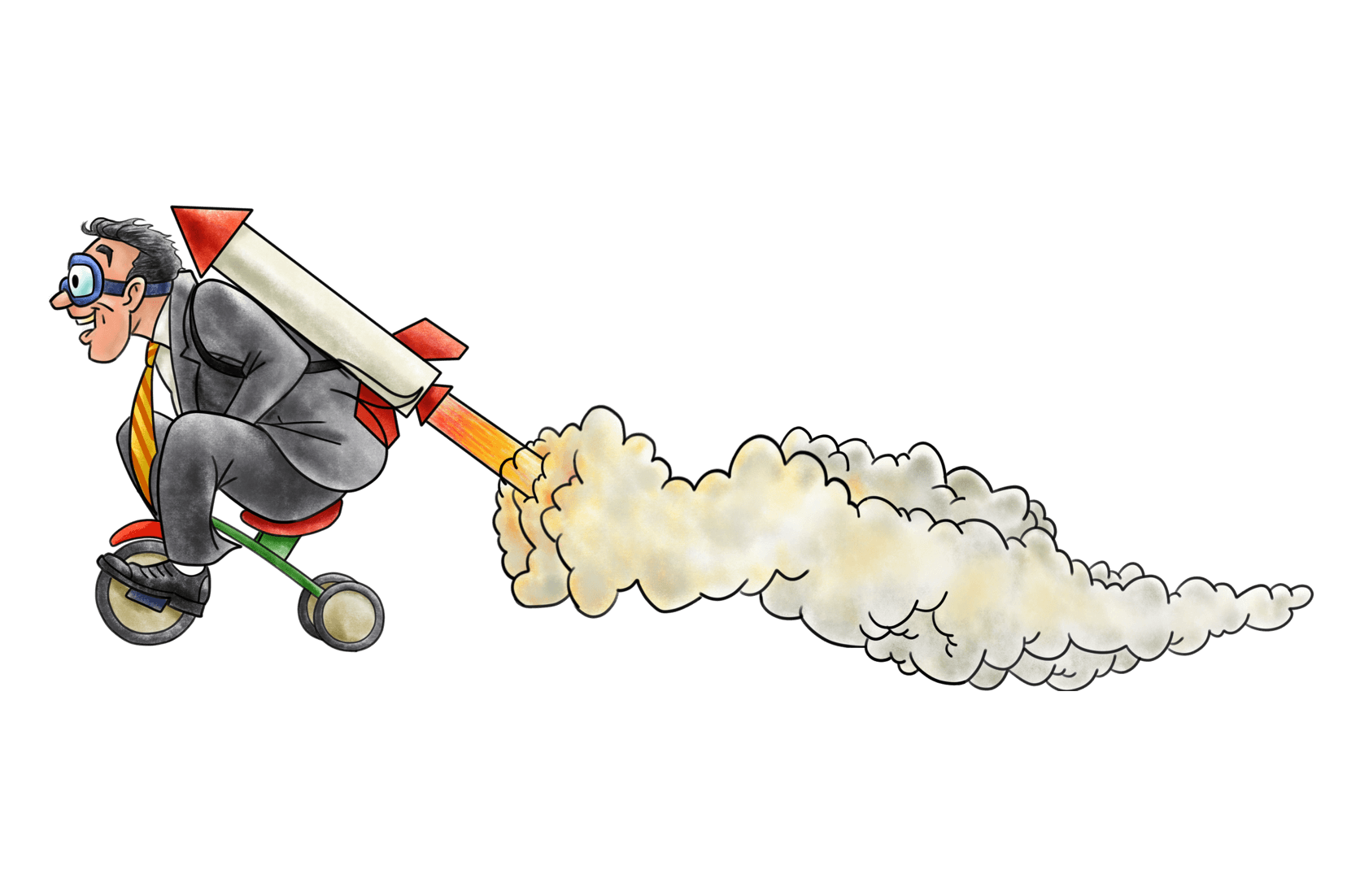
The panic surrounding the coronavirus has reminded me of how poorly us humans deal with uncertainty. Uncertainty itself is neither good nor bad. It's the stories we tell ourselves about uncertainty and what we assume it means for us in the future that seem to unravel us.
The stories that stick tend to be fear inducing and exaggerated. Our minds leap to worst case, fuelled by tidbits of supporting information that we collect (often subconsciously) throughout the day. Most of it confirming what we already believe, as we actively filter out disconfirming information.
This process feels good, as it gives us an element of control and stability in an otherwise fast-changing and unstable environment. Yet without realising it, as we selectively curate more information to support our belief, we're making it more difficult for us to keep things in perspective.
We're wired to conserve energy and find the path of least resistance. In this scenario, the path of least resistance is usually to maintain the position we've already invested time in. Not to mention staying open to conflicting ideas and information raises the uncomfortable likelihood that we may be wrong! As we know, our egos don't like to be wrong, it hurts.
You can't escape uncertainty
Uncertainty fascinates me, and I see it regularly in two areas that have my attention: starting a business, and investing.
Starting a business

After working in a startup for close to four years, I've grudgingly accepted uncertainty in my day-to-day life. I regularly find myself making decisions for the first time with zero past history, minimal information and uncertainty in the outcome.
In the early days, this was frightening. It was like being blindfolded and taking confident steps forward. My natural fear response was to keep searching for more information to give me some sense of control. I'd think, 'surely someone else has faced this decision before?!' This slowed my decision making down and didn't materially change my comfort level.
Over time I've realised that uncertainty is synonymous with the future. To resist uncertainty and the unwelcome emotions it seems to create only pours more fuel on the fire. Instead, it's accepting uncertainty and making space for its associated emotions that seem to bring peace, as counter-intuitive as this sounds.
Investing

Investing is another field that's familiar with uncertainty and fear. I think investing is the ultimate sandbox from which to witness the full spectrum of human behaviour and emotions colliding.
Investors make educated guesses based on information available to them at the time and what they think (hope) will happen in the future. Fear is ever-present - am I making the best decision for the future? Am I missing out by NOT investing in a stock? What if I get it wrong? Or worst of all, what if I get it wrong and people I know get it right? Instead of being driven by fear investors have to find a way to work with it. To bring it along as a necessary, if undesirable, passenger.
Uncertainty and fear are always present in investing. No one knows what the future holds, but we can all have an opinion. Investors are bombarded with opinions and thought pieces daily, while the ASX is tracked to the second. Included in the chorus of voices telling investors what their next action should be are some pretty convincing experts. Experts, who are likely to have more experience and knowledge to draw from, yet are faced with the same level of future uncertainty as the rest of us. As Annie Duke in Thinking in Bets says:
"An expert in any field will have an advantage over a rookie. But neither the veteran nor the rookie can be sure what the next flip will look like. The veteran will just have a better guess."
The solution: lean into it
Over time I've learnt to accept that uncertainty is here to stay. Here's three techniques I find useful to help combat uncertainty and fear.
1. Think in probabilities rather than binary right/wrong
In my mind uncertainty encourages if not requires, thinking in probabilities. It breaks away from binary right/wrong, yes/no thinking and allows for the uncertainty that we know is there.
An easy way to start is to ask:
- How certain am I of a particular outcome? 45%, 70%, 90%?
- What makes me certain?
- What makes me uncertain?
I ask myself these questions when I'm making a decision. They remind me that uncertainty is always present. That there's always ambiguity and unknowable information, that's not available to me. And that's ok.
That's true regardless of the decision type, whether it's something I've faced before or for the first time.
2. Speak to people you trust
Have a small group of trusted advisors or mentors, who you can ask questions and share experience.
When I was in the Entrepreneurs Organisation, the mantra was speak from experience rather than give advice. I try to practice this daily.
Drawing on experience from people who have 'been there' and faced similar situations, gives insight and possible ways forward. It also gives comfort, that while the particular event or scenario might be different, the approach could be similar. We've all faced uncertain situations in the past, and will continue to do so in the future. There's value in sharing our learnings and contributing to our collective wisdom.
Your advisors don't have to be in your immediate network either. I regularly look to people like Warren Buffet, Charlie Munger and Howard Marks for guidance. Usually in the form of books or videos on YouTube.
3. Make up your own mind and be willing to change it
Do the work to have an opinion, including looking at evidence and opinions that disagree with your own. As Charlie Munger says, "It’s bad to have an opinion you’re proud of if you can’t state the arguments for the other side better than your opponents."
In my experience this is hard to do, but liberating. Actively searching for information to disconfirm what you already believe feels like going against human nature. My brain shouts at me, 'don't make it harder than it needs to be!'
Staying open-minded is a super power. It's a defence against becoming entrenched in existing beliefs and can lead to superior critical thinking. It's a pre-requisite to changing your mind. Being wrong is ok and in fact should be celebrated. If you're never wrong then you're not trying hard enough and you're consistently making decisions with high certainty.
"Any year that you don’t destroy one of your best-loved ideas is probably a wasted year." - Charlie Munger
4. Remain calm and pragmatic
I don't know about you but I do my best thinking when I'm calm and relaxed, not agitated and fearful. I try to achieve this by protecting my attention, and not getting sucked into the 'doom vortex' presented by the media.
Thinking in probabilities, speaking to people I trust and staying open-minded are three techniques that contribute to keeping me in a calm state.
Wrap up
Uncertainty is a part of life, right now that's more clear than ever. But uncertainty is also an opportunity to confront our assumptions and learn to adapt. You can't control the future, but you can control how you react to it. It's scary, but we can do it. What techniques help you manage uncertainty?1.




















































































